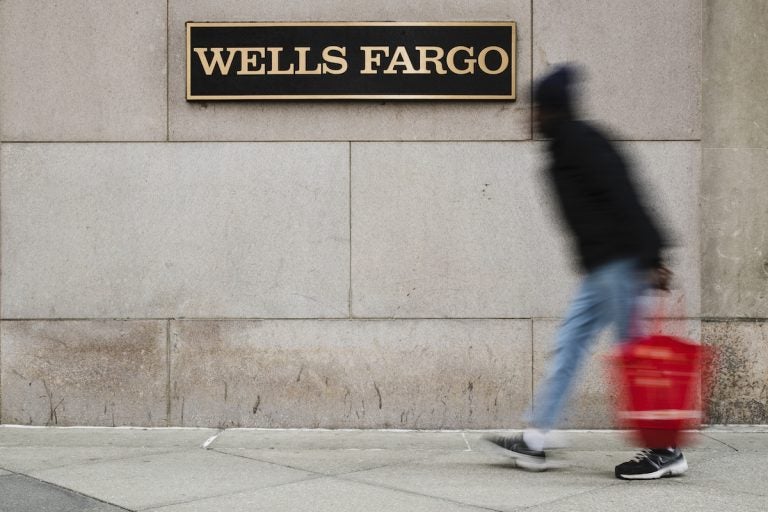Wells Fargo to pay $3B to resolve probes into fake accounts
Since the fake-accounts scandal came to light in 2016, Wells has paid out billions in fines to state and federal regulators.

This Nov. 29, 2018, photo shows a Wells Fargo bank location in Philadelphia. (Matt Rourke/AP Photo)
Wells Fargo agreed Friday to pay $3 billion to settle criminal and civil investigations into a long-running practice whereby company employees opened millions of unauthorized bank accounts in order to meet unrealistic sales goals.
Since the fake-accounts scandal came to light in 2016, Wells has paid out billions in fines to state and federal regulators, reshuffled its board of directors and seen two CEOs and other top-level executives leave the company.
The $3 billion payment includes a $500 million civil payment to the Securities and Exchange Commission, which will distribute those funds to investors who were impacted by Wells’ behavior.
“Wells Fargo traded its hard-earned reputation for short-term profits” said U.S. Attorney Nick Hanna for the Central District of California.
Before the scandal broke, Wells Fargo was considered to have a sterling reputation among the big banks. But that sterling reputation came with an incredibly aggressive sales culture. The bank referred to its branches as “stores,” and once had a policy of trying to get each Wells Fargo customer to have eight financial products with the company.
Wells’ sales policies, pushed by top management, were aggressive and unrealistic. Bank employees were berated for not making bloated sales quotas, which ultimately resulted in many employees gaming Wells Fargo’s sales system in order to meet these artificial sales goals. For example a number of Wells Fargo customers, notably the elderly, were signed up for online banking when they did not have Internet access.
The documents that lay out the charges against Wells Fargo lean heavily on the behavior of “Executive A,” described as the head of Wells’ community bank business and the regional bank division from 2002 until 2017. Carrie Tolstedt held those positions during that time period. Tolstedt was aware of employees using fraudulent means to achieve sales goals as early as 2005, according to the DOJ.
“I just want (Executive A) to be constantly aware of this growing plague,” one Wells Fargo executive wrote in an email.
The settlement with the Department of Justice covers Wells Fargo as a company, and the DOJ could still go after individuals for violating bank laws. The Office of the Comptroller of the Currency, one of the nation’s bank regulators, fined several of Wells’ former top executives earlier this year for their role in the scandal.
Former chief executive John G. Stumpf was fined $17.5 million and agreed to a lifetime ban from the banking industry. The OCC sued Tolstedt for $25 million for her role in the scandal, a suit that Tolstedt’s lawyers say they intend to fight.
Current Wells Fargo CEO Charlie Scharf, who started the job only a few months ago, has staked his early reputation on resolving all of the bank’s legal questions. He has been blunt in saying that what the bank did under previous management was unacceptable.
“The conduct at the core of today’s settlements — and the past culture that gave rise to it — are reprehensible and wholly inconsistent with the values on which Wells Fargo was built,” Scharf in a statement.
WHYY is your source for fact-based, in-depth journalism and information. As a nonprofit organization, we rely on financial support from readers like you. Please give today.




